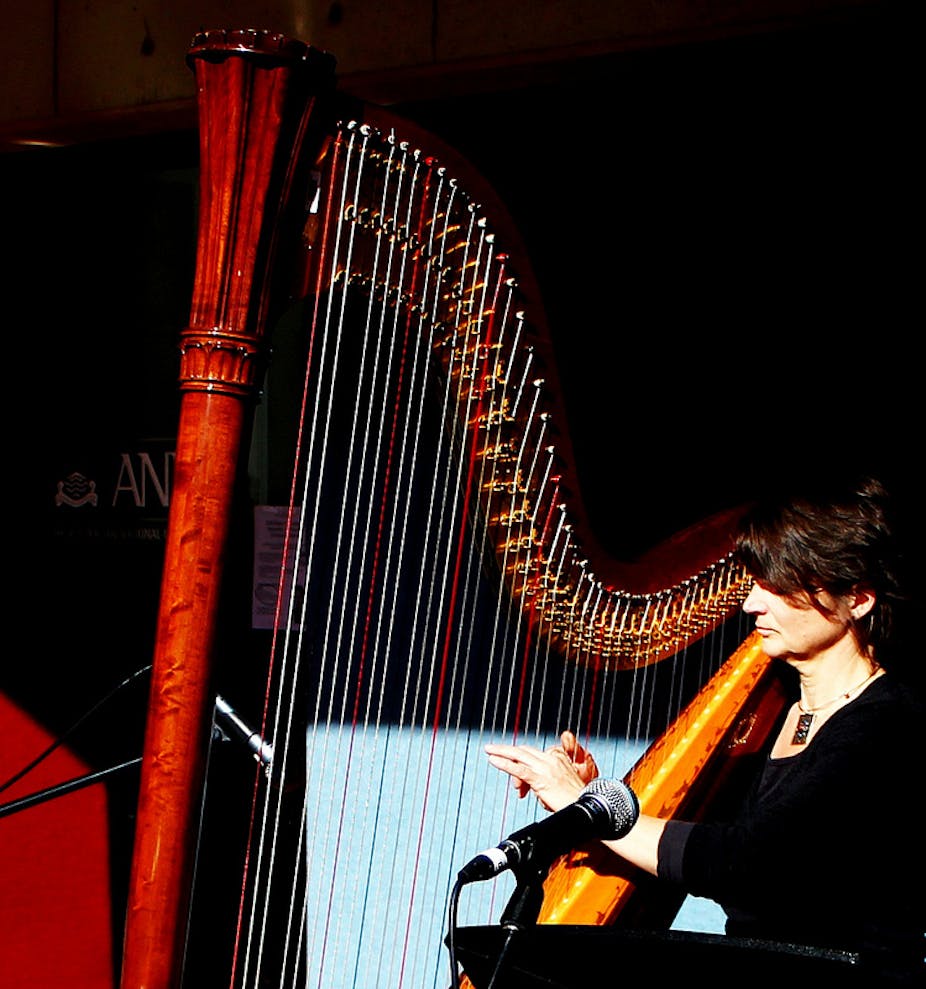The Australian National University will proceed with plans to slash academic staff at its School of Music by almost half, in a bid to make it “financially sustainable … without being an unacceptable burden on the wider university community,” Vice-Chancellor Ian Young said.
Professor Young said the university would cut the number of staff by 13 full-time-equivalent positions: from 24 academic positions to 13 and from 10 administrative positions to eight.
The university was forced to abandon plans to spill all positions at the school, and said the cuts would now be achieved with internal transfers, planned retirements, voluntary separations, voluntary transitions to part-time employment - “and, as a last resort, redundancy”. The restructure, deeply unpopular among staff, students and the wider community, is purportedly aimed to eliminate $1.3 million of the school’s annual $2.7 million deficit.
There have been several protests since the plans were announced last month, but Professor Young said the changes were “essential to ensure the viability of the School. We need a sustainable model of music education. The new model meets the high academic standards of ANU, the high musical standards of the School and the career needs of students. It also ensures that ANU will continue to play a significant role in the cultural life of Canberra and our region.”
Under the revised curriculum at the school, there will be a single Bachelor of Music degree, with two streams of study: Music Performance and Music Inquiry. Current students will not be affected.
Alice Giles, an Associate Professor at the School and a harpist of world renown, said the restructure would destroy the unique appeal of the School, which attracted students who wished to study performance with members of staff famous for their expertise with particular instruments.
“I’m advertised as the harp teacher at the ANU and people elect to come here to study with me as the harp teacher,” Professor Giles said. “Under the new model they can’t advertise me as the harp teacher and there’s no reason for someone to relocate to Canberra to study the harp … I’m a nameless, faceless contractor.
"Students who want to study performance care about who the teacher is. The university is saying performance still exists, but it’s not a curriculum to which any performance student will apply. Students are not stupid.
"The professional development allowance is cash that they give to the student for the semester. They’re not obliged to use it in any particular way. They’re expected to find a teacher who will teach them for that price. They could also fly to Germany and have one masterclass. There’s no academic control on that model - it’s academically irresponsible.”
The university said the new academic staff level of 13 - for a student body of about 200 - compared favourably with the Faculty of Music at Cambridge University, which has 14 academic staff for a student body of about 250. “The new degree is based on the model adopted by music schools such as those at Cambridge, Oxford and Harvard,” the university said.
But Professor Giles said Canberra was “a completely different city and the situation is quite different. You can’t guarantee the proximity of the high level of performance staff without paying them. In Harvard, for example, you have the Boston Symphony, you have an enormous number of high-ranking performance teachers in close proximity. You also have conservatories.”
The National Tertiary Education Union’s ACT division secretary Stephen Darwin said staff at the school were “devastated by the decision. The deficit they claim to have is illusory. They managed to lose a block grant they were given, and they’ve put a huge facilities cost on the school.
"It’s a dire outcome. They’re really just abandoning the model of music education that has been characteristic of that school for a generation, and moving to a more mainstream model. This was a different model that they had, and given it’s a national university, it’s a symbolic abandonment.”
In a statement last month, ANU Chancellor Gareth Evans said the School’s curriculum and staffing arrangements were unsustainable.
“Council was strongly of the view that the School of Music has been a wonderful resource not only for ANU, but for the Canberra community and indeed the whole nation,” he said. “And that it was particularly important in this context that its performance teaching stream remained credible and viable.”

